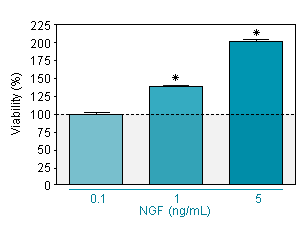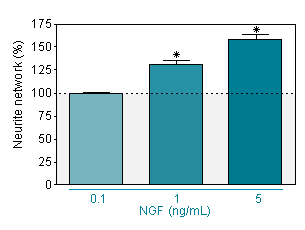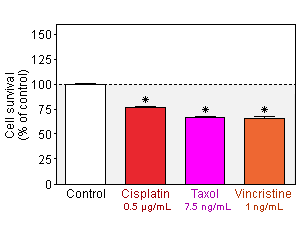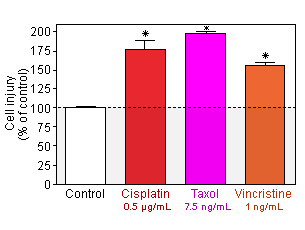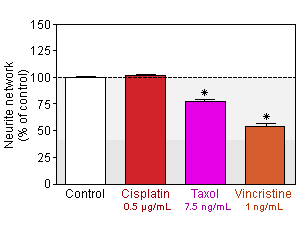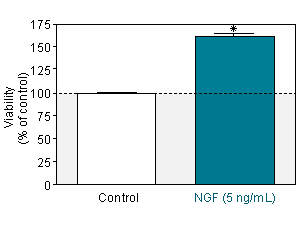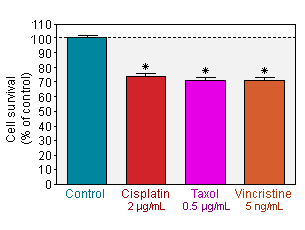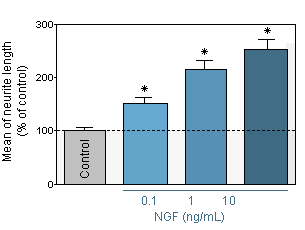PERIPHERAL NEUROPATHIES
-
Peripheral neuropathy is the result of damages of the peripheral nervous system. These disorders can be caused either by a trauma or diseases as for example diabetes.
NEUROFIT proposes animal and cellular models usefu for the evaluation of the neuroprotective activity of your coumpounds.
Cellular model: Basal Condition
Damage sensory neurons are involved in various symptoms of peripheral neuropathy such as pain, numbness, tingling, burning, …
Neurofit developed 3 different types of primary culture to assess the neurotrophic, neuroprotective or neurotoxic properties of compounds.
-
Sensory neurons and Schwann cells co-culture from rat embryos READ more 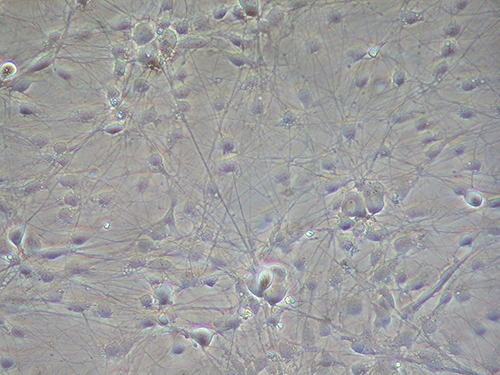
 mimics the in vivo nerve
mimics the in vivo nerve  axon/neuron-glia interaction
axon/neuron-glia interaction
 allows to study the involvement of Schwann cells on the survival of sensory neurons
allows to study the involvement of Schwann cells on the survival of sensory neurons
-
Purified sensory neurons culture from rat embryos READ more 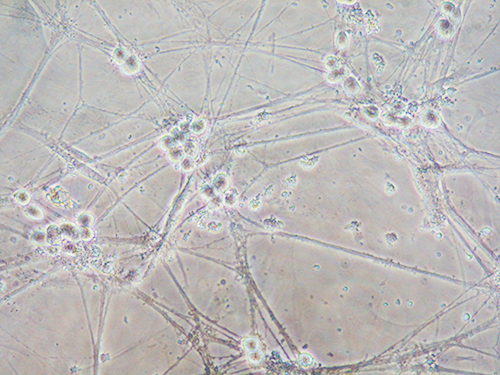
 focused approach
focused approach to study direct neurons responses to stimuli
to study direct neurons responses to stimuli -
Culture of neurons from adult rat dorsal root ganglia READ more 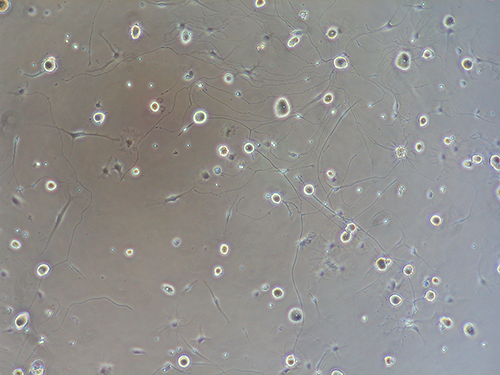
 neurite outgrowth without stimulation (NGF)
neurite outgrowth without stimulation (NGF) allow the use of naïve or pathological rodents
allow the use of naïve or pathological rodents reflect the broad diversity of mature neuronal population: mimic the in vivo characteristic
reflect the broad diversity of mature neuronal population: mimic the in vivo characteristic
-
-
Neurotrophic
Neuroprotectant
or neurotoxic
-
Neuronal activity or survival (phosphatase acid activity)
Neuronal death (LDH release)
Measure of neurite network
-
Phosphatase acid
NGF increases the basal activity of embryonic sensory neurons and Schwann cells coculture in a dose dependant manner. -
Neurite network
NGF increases the neuritogenesis of sensory neurons. -
Phosphatase acid
Cisplatin (0.5 µg/mL), Taxol (7.5 ng/mL) and Vincristine (1 ng/mL) induces cell death in embryonic sensory neurons and Schwann cells co-culture. -
extracellular LDH
Cisplatin (0.5 µg/mL), Taxol (7.5 ng/mL) and Vincristine (1 ng/mL) induces cell death in embryonic sensory neurons and Schwann cells co-culture. -
Neurite network
Taxol (7.5 ng/mL) and Vincristine (1 ng/mL) induce a destruction of neurite network. -
Ask for more information
-
-
Neuronal activity or survival (phosphatase acid activity)
Neuronal death (LDH release)
-
Phosphatase acid
NGF increases the basal activity of embryonic sensory neurons. -
Phosphatase acid
Cisplatin(2 µg/mL), Taxol (0.5 µg/mL) and Vincristine (5 ng/mL) induces cell death in embryonic sensory neurons.
-
-
Although adult neurons may behave biologically differently than embryonic neurons, they are rarely used in research because culturing neurons from adult animals is challenging and often returns poor cell yield.
NEUROFIT can reliably culture adult rat sensory neurons. The assay is cost-effective and is suitable for routing assessment of the neurotrophic, neuroprotective or neurotoxic properties of your test compounds.
-
Mean of neurite length (% of control)
Cultured adult neurons are pharmacologically responsive to NGF stimulation as shown by the dose-dependent increase in the neurite length.
You could also be interested in
-
Cisplatin treatment
Peripheral neuropathy is the result of damages of the peripheral nervous system induced by insult such as the neurotoxicity of cisplatine.
-
Taxol treatment
Peripheral neuropathy is the result of damages of the peripheral nervous system induced by insult such as the neurotoxicity of taxol.
Vincristine treatment
Neurofit developed this model to assess the neuroprotective properties of compounds aiming to counteract chemotherapy side effects.

